Once your containers have been filled with the right compost such as multipurpose, ericaceous, or a tub mix, within a short time of 4-6 weeks all the nutrients will be depleted. After this in order for the plants to flourish an additional feed is required at frequent intervals (once a week or fortnightly).
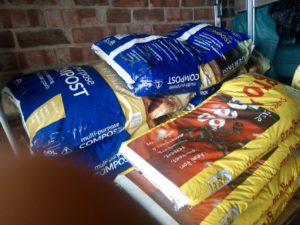
If plants are fed right at the right intervals they will reward you with plenty of blooms, bountiful fruits and vegetables, or lush leaves. Remember overfeeding can cause as much damage as underfeeding, as this can promote diseases and attacks by pests. It is always recommended to feed your plants at the manufacturer’s direction on the package.
You will also save money as fertilizer can be expensive.
THE THREE IMPORTANT ELEMENTS-NPK
All plants need three elements in varying quantities. Nitrogen (N) to produce new shoots and leaf growth, phosphorus (P) for healthy root development and Potassium (K) for flowers and fruit development. All the fertilizers that you will buy contain these elements at different ratios, so you can match the fertilizer to your plants’ requirements.
Fertilizers also contain macro elements (such as sulphur and calcium), elements required by the plant in small quantities but not as much as nitrogen, phosphorous or potassium, and trace elements (such as manganese, iron, magnesium, zinc, molybdenum, chlorine and iodine) that are required in tiny quantities in order for the plant to be healthy.
Look out for problems in plants as this can show element deficiencies that will need to be corrected via fertilizers.
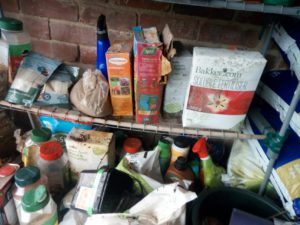
Fertilizers with high nitrogen content, such as sulphate of ammonia, are best for plants that produce mainly foliage. High potassium content, such as sulphate of potash, are used when flowers and fruit production is desired. If you are growing root vegetables in containers, high phosphorous content is required, such as superphosphate or bonemeal, which promote good healthy roots.
You may need to swap between fertilizers later on the growing season, so that early on you may use a high nitrogen feed to help produce green leaves but change to a high potassium feed later on to produce more bloom or fruits. General fertilizers such as growmore and fish, blood and bone can be used throughout the growing season as a quick tonic for plants.
These general provide nitrogen, phosphorous and potassium at the right ratio for good plant health and growth.
SLOW RELEASED FERTILISERS- A BUSY GARDENER CHOICE
Nowadays slow release fertilizers are widely available that slowly release their nutrients to the plant over six months. The obvious advantage is that the plants will not need feeding again in the growing season. They are no substitute if your plants are showing nutrient deficiencies, as the nutrient will need to be taken up quickly by the plant in order to survive.
This is when liquid fertilizers are a blessing as they are quickly taken up by the roots of the plant.
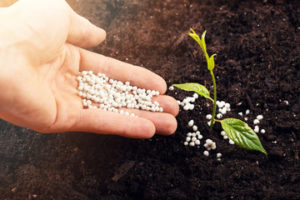
Acid loving plants need to be grown in ericaceous compost, compost where no lime has been added and therefore acidic. Iron sulphate and ericaceous fertilizers need to be used in this case as you do not want to increase the pH of the compost.
By careful selection and dosage rates, there is a fertilizer for your container garden, as long as you use the correct method highlighted in this post.
WATERING
When plants are thirsty they sulk and wilt, or when they are overwatered the plants do not like it. When plants are overwatered the soil is constantly over wet and the plants cannot take up oxygen in their roots. This causes the plants to wilt even though the soil is wet.
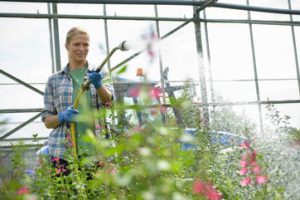
The result would be also that the leaves start turning yellow, and eventually brown and drop off. The roots also start to rot. Do not assume that if the plant is wilting that the plant needs water, which is why a moisture level meter can be useful in this regard.

Do not allow the compost to dry out too much as it can be difficult to re-wet it, as water will just run off the surface, and it can reach a point where a plant is beyond redemption. Check all pots, planters and hanging baskets daily from spring to mid-autumn, and in winter to make sure that the containers are not waterlogged.
When watering fill the space between the compost surface and the rim of the pot with water so that it diffuses through gradually, and the compost is wetted to the right depth. Small containers will dry out very quickly and so may need watering twice a day in a hot, dry summer.
KEEP IT WET AND NOT DRY
If you have little time, a water trickle irrigation system may be useful but could be costly for those on a water meter, but is really useful for those forgetful gardeners. Another way to keep water losses down is to use mulches, which is a topic of another post.
Watering spikes with a drinking soda bottle attached to it or watering glass bulbs or globes have come into fashion for those who are conscientious
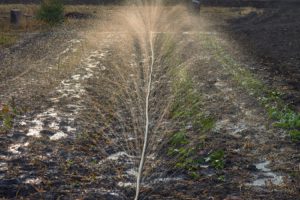
about their water usage. These are great when you go on holiday during the summer months and you need to make sure that plants are watered and you have nobody who could do this task.
They are also relative cheap especially compared to an irrigation system.
For hanging baskets out of reach do not use watering cans as this will put excessive strain on your shoulder and back. It is recommended that a lance attachment on your hosepipe is used and also safer than climbing a ladder.
LOOK AFTER YOU PLANTS AND YOUR PLANTS WILL LOOK AFTER YOU
Watering is important in plants, get it right your plants will flourish, get it wrong and they will die because of under and over watering. For those who wish for their plants to flourish in containers getting the feed and watering right will ensure that the balance- the ying and yang- is maintained through the growing seasons.
If you have any questions that you want to raise or points to discuss, please leave a comment below, and I will get back to you.
Thanks

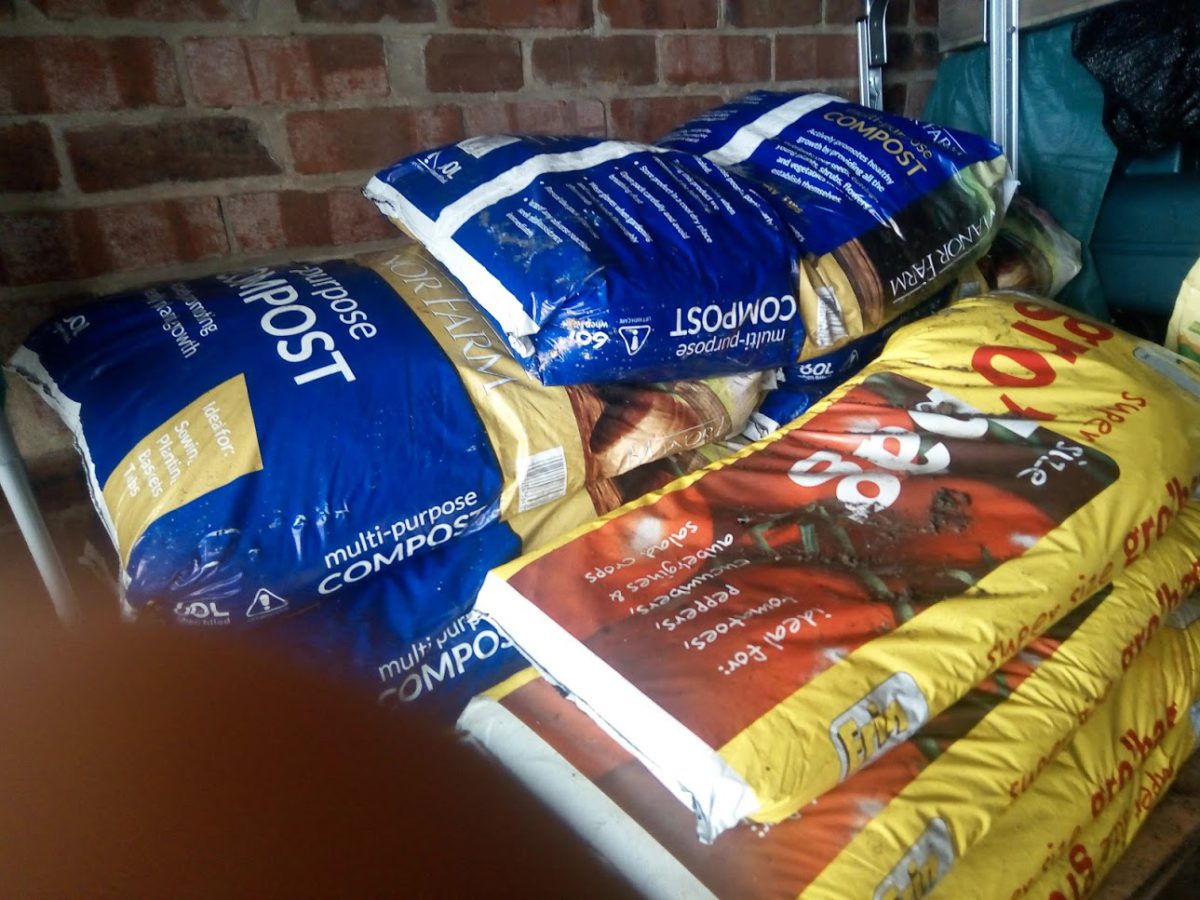


Alright, I will look for slow release fertilizers however I don’t have any online shopping opportunity in where I live. Do you have any recommendation?
This is difficult to answer because it is dependent on which country you live it. In the UK I recommend Westland products, especially their slow release fertilisers. Hope that helps
Hi Antonio,
Do you have any recommendations for killing weeds without having to use something like round-up? I am having the devil of a time with dandelions this year in my lawn?
Thank you
Mary
The best way to get rid of weeds in lawns, is to use a general weed, feed, seed and moss killer in early spring. This will kill any weed and moss in the lawn. A repeat application may be required but if applied right should deal with the problem. Your lawn will look terrible afterwards, when you will need to scarifier two weeks later. Most weeds will regrow but will be mis-shaped and weakened. Keep at it
Antonio,
I do have a container garden on my side deck. I only have to water it when the weather turns hot and dry. I do have a watering can that I use to water and holes in the lower part to drain water if we get too much rain.
I like the information on the slow release fertilizer, I think I will look for some the next time I go to the plant store. Is there any thing I should look for other than a slow release.
John
Hi John
Thank you for your kind comments and hope your containers have survived the past winter. In slow release fertilizers, I would recommend Miracle-gro products and even products that can be bought from pound/ dollar stores as plants seem to do well. Remember expensive does not necessarily outperform cheap products, But the advantage of cheap is that you can fertilize a large area of a garden without spending too much.
Thanks
Antonio